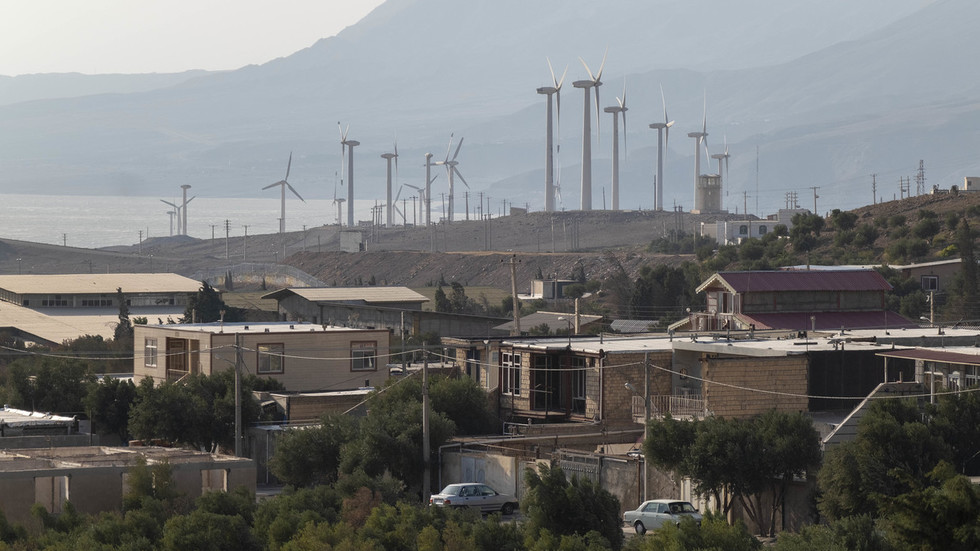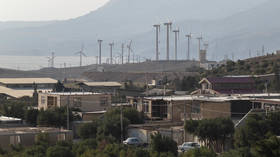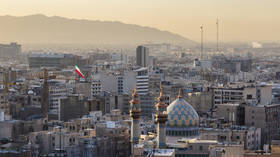
Tehran is seeking to integrate its system into a Russia-led zone, according to its chief energy official

FILE PHOTO: The Manjil wind power plant in Iran © Morteza Nikoubazl / NurPhoto via Getty Images
Iran will soon start exchanging electricity with Russia once its plan to connect the two national power grids via Azerbaijan is complete, Energy Minister Ali Akbar Mehrabian has said.
Mehrabian did not offer a specific timeline but confirmed that Tehran will also move forward with an alternative path through Armenia and Georgia.
The Iranian and Armenian power grids are already connected. Iran supplies natural gas to its northern neighbor to fuel power plants there and receives electricity in return, with Armenia keeping a share as compensation. The two nations agreed last year to double the capacity of the scheme by 2023.
“We are trying to connect Iran’s electricity network to all regional countries. This makes the network more stable and provides more electricity during different times of the year,” Mehrabian explained.

Read more
The project to link Iran’s energy grid with that of Russia’s was given impetus in 2016 after the signing of the Joint Comprehensive Plan of Action (JCPOA), which focused on Tehran’s nuclear industry and saw international sanctions lifted from the Middle Eastern country.
Azerbaijan was reportedly initially reluctant to serve as a transit nation between Russia and Iran due to Tehran’s energy cooperation with Armenia. Baku and Yerevan have a long-standing conflict over the disputed area of Nagorno-Karabakh.
For optimal flexibility, Iran would need to match its power grid parameters with Russian ones. Nations included in a synchronous power grid can balance their generation and loads, and save on operational costs.
Russia is part of the IPS/UPS, a wide-area synchronous transmission grid which covers most of the country, Mongolia and several post-Soviet states, including Georgia and Azerbaijan.
READ MORE: Iran is building a massive energy network to boost its geopolitical influence
Iran has been moving its own national system, which is synchronized with some of its neighbors, including Armenia, to match the Russian one. Mehrabian reported last year that preliminary work on the transition was complete.




